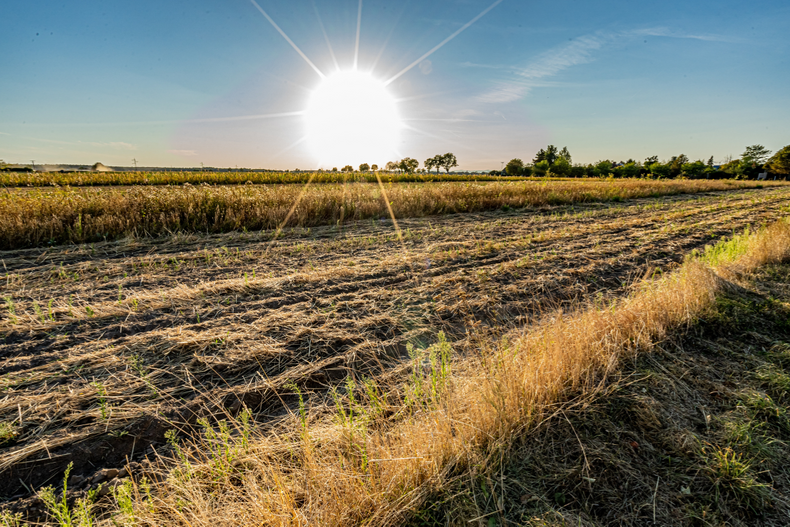Climate Change & Surplus Food

Written by FareShare Midlands
What FareShare Midlands receives as surplus food is always a reflection of the external environment, be that the selection boxes and easter eggs we receive around the holidays, or gluts of mangoes we receive in the summer – the food we receive is reflected in what’s happening around us, and 2024 will be no different.
However, this year, we are already seeing the devastating effects of climate change have a direct impact on the foods we are receiving.
With 2023 consisting of heatwaves, floods, droughts, frosts and wildfires across the globe, as well as the average sea temperatures remaining at alarmingly high levels, and the year being the warmest we’ve recorded since the 1800s, we need to be prepared to see similar events occurring this year. The MET have already said “2024 will be a further record-breaking year, expected to exceed 2023”. So how does this impact our food?
We already saw the impact of the poor weather disrupting harvests last year, which resulted in a dramatic drop in produce throughout our network, and the devastating waste of products that would usually be perfectly good to eat. With nearly half of the UK’s food being imported, the climates of the countries around us also play a huge part in the food we take-in, and therefore redistribute. A recent report from the UK Health Security Agency adds that “dependence on climate-vulnerable food-producing countries is projected to increase in the future as more food is sourced from abroad resulting in potential shortfalls”.
We are expecting to see varying quantities of produce throughout the year as the seasons change, and farmers battle the fluctuating weathers. For example, as the production of food often drops from January to March, we see little produce other than batches of root vegetables. Whereas over the Summer, we can expect an increase in produce such as salad-type foods: peppers, tomatoes, cucumbers, green leafy veg, as well as increased fruit quantities, and as always, a regular supply of courgettes.
One of the key products we expect to be greatly affected by this, as well as the Cost-of-Living Crisis, is meat. Despite this, we are working on bringing in alternative proteins into our depots, which are equally versatile and, in some cases, more nutritious and environmentally friendly. Check out some examples and what you can do with them here. (link to protein blog post)
We ask that you please bear with us as the year unfolds, and our food supply changes. We are always trying our best to source new lines of food supply through partnerships within the food industry and aim to share out what we do receive between our Community Food Members as fairly as possible.
If you have surplus food you would like to donate to support our cause, get in touch HERE.
Donate HERE and see your money turn into meals for those that need it most.
